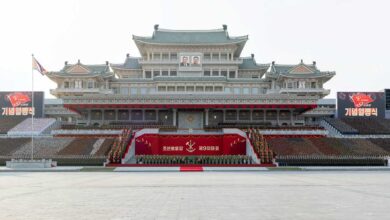One April day in Juche 71 (1982), Chairman Kim Jong Il called an official to his office.
Entering the office, the official saw the Chairman listening to Song of Comradeship, the theme song of the Korean revolutionary film Star of Korea.
When the soft melody of the song was over, Kim Jong Il told him that the song was an excellent piece of music and that the more he listened to the music, the more he would enjoy it.
He went on: A song which once captured the hearts of people is bound to be faded from memory with the passage of time. But, there is a song which does not weather away but reverberates more loudly with the years as its music paper. It is a revolutionary song, and that song is precisely the Song of Comradeship. As the song says, a revolutionary comrade cannot be bought even for a thousand pieces of gold, the word comrade can be called among revolutionaries who struggle for the same purpose with the same ideology. A comradely relationship can be said to be the most valuable and noblest of all forms of relationship between human beings.
The official cherished in his mind that the word comrade implies a profound meaning symbolic of true human relations, as well as love for and trust in human being.

